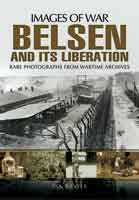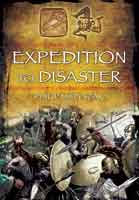Masada (Paperback)
Mass Suicide in the First Jewish-Roman War, c. AD 73
Imprint: Pen & Sword Military
Series: History of Terror
Pages: 128
Illustrations: 60
ISBN: 9781526728975
Published: 11th February 2019
(click here for international delivery rates)
Order within the next 2 hours, 37 minutes to get your order processed the next working day!
Need a currency converter? Check XE.com for live rates
| Other formats available | Price |
|---|---|
| Masada ePub (12.4 MB) Add to Basket | £6.99 |
In the spring of 73 AD the rock fortress of Masada on the western shore of the Dead Sea was the site of an event that was breathtaking in its courage and self-sacrifice. Here the last of the Jewish Zealots who, for nearly eight years, had waged war against the Roman occupiers of their country made their last stand.
The Zealots on Masada had withstood a two-year siege but with Roman victory finally assured, they were faced by two options: capture or death. They chose the latter and when the Roman legions forced their way into the hill fort the following morning they were met only with utter silence by row upon row of bodies. Rather than fall into enemy hands the 960 men, women and children who had defended the fortress so heroically had committed suicide.
The story of the siege and eventual capture of Masada is unique, not just in Israeli legend but in the history of the world. It is a story of bravery that even the Roman legionaries, well used to death and brutality, could see and appreciate. It was a massacre but a massacre with a difference: carried out by the victims themselves. The story of Masada has gone down in Israeli and Jewish folklore. It is little known elsewhere and it is time to redress the balance.
Masada was a story I knew, but not in detail. The centuries have led to the forgetting of this fortress until 1800, when many travelers noticed it. This and the fact that it was difficult to access and that it was in an inhospitable environment created the possibility that time had stopped at the moment of the Roman conquest or almost. At the same time that myth of death preferable to conquest (true or false we don't know) meant a lot for the birth of the nation of Israel. Phil Carradice tells us this story with his usual skill.
Omne Ignotum Pro Magnifico
Read the full Italian review here
As featured by
VaeVictis - n° 144 - mars/avril 2019
The account of the siege, the defences, the huge ramp which was constructed by the Romans, and the details of the ultimate Roman victory, is compelling, riveting reading. The dissection of the available evidence is thorough, and various alternative possible scenarios are weighed... An excellent read.
John's Machines
Read the full review here
As featured on Army Rumour Service
Army Rumour Service (ARRSE)
Filled with great images... an enjoyable book!
The View From The Turret Vlog
Watch the full video review here
The structure of this book is excellent. Amply assisted by a number of relevant images, the text builds to a crescendo in the final chapters, where Carracide provides a superb example of careful and thought-provoking historical writing. Enjoyable, engaging, informative and sensitively written, with a careful eye on modern times, Carradice’s book is ‘must have’ for any reader, and particularly any student, who wishes to not only understand the events at Massada, but also seeks a demonstration in the art of careful historical analysis.
Zack White, Freelance
About Phil Carradice
Phil Carradice is a well-known writer and historian with over 60 books to his credit. A poet, story teller and broadcaster, his most recent books are The Cuban Missile Crisis (Pen and Sword), The Call Up (Fonthill) and the novel Stargazers for Accent Press. He is a regular broadcaster on BBC Radio and TV, presents the BBC Wales History programme 'The Past Master' and is widely regarded as one of the finest creative writing tutors in Wales.

























